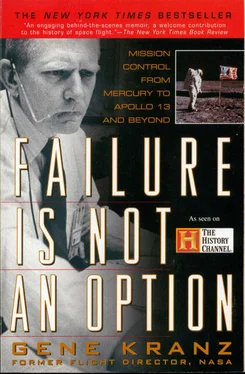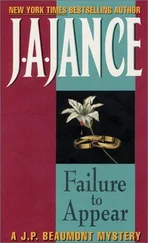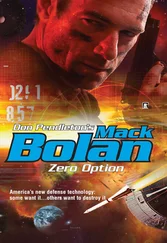Now, with a surplus of power, Windler gave the order to start power-up two hours early to try to get some heat into the spacecraft to give the crew a brief respite from the cold. Throughout the entire mission I had believed in my heart that we would get the crew home; now it was becoming a reality. Generating options was our business, and options remained as long as there was power, water, oxygen, and propellant. My controllers kept finding options.
April 17, 1970, Apollo 13—Reentry
Three hours before dawn, the White Team took its place next to Windler’s Maroon Team controllers. The eighty hours of uncertainty were now past and we were down to the final shift. During the return we had twice fought a shallowing trajectory, a glitch in a lifeboat battery, and a brush with typhoon Helen at the landing site. A last-minute maneuver returned us to the reentry trajectory. But we maintained our course as hour by hour we closed in on our objective, Earth.
The most chilling discussion came a few hours before entry, as the crew jettisoned the damaged service module and then maneuvered to observe the damage.
Lovell: “Okay, I’ve got her, Houston… there is one whole side of the spacecraft missing. Right by the… Look out there, will you? Right by the high-gain antenna, the whole panel is blown off, almost from the base of the engine.”
CapCom (Joe Kerwin): “Copy that!”
Haise: “Yes, it looks like it got the SPS [main engine] bell, too. That’s the way it looks, unless that’s just a dark brown streak. It’s really a mess.”
Lovell: “And, Joe, looks like a lot of debris is just hanging out the side near the antenna.”
Since the time of the explosion, I had deliberately avoided any discussion of damage to the command module, the reentry spacecraft. Briefly my thoughts focused on our decision not to trust the engine. Was it just a lucky guess or was there some gut instinct that Kraft, Lunney, and I shared? The heat shield scare with John Glenn’s Mercury mission was never far from my mind, but I gave this no further consideration. If there had been any damage to the command module heat shield, there was nothing we could do about it now. At a certain point the human factor has accomplished all it can. Then things rest in the hands of a higher power.
As I went around the horn for the final Go NoGo check for entry, I felt a sense of loneliness in the room. We were getting ready to turn the crew loose. Once in blackout they were on their own; no more help from the team, no one watching over their shoulder. During the last twenty-four hours we could vividly imagine how desperate the atmosphere must have been in the spacecraft, how cold and how close to the edge the crew must have been.
Joe Kerwin, my entry CapCom, was an astronaut and medical doctor. His bedside manner with the crew during the final hours was spectacular. He was coach, mentor, doctor, friend, and partner to the crew. At times I felt he was virtually on board the spacecraft, nudging the crew through its checklist. With my final status check and the “Go for entry,” a feeling of melancholy filled the air in the control room. This crew was special. We just could not lose them. Once again, failure was not an option.
It was tough to express feelings on the air-ground loop with the whole world listening. On this loop both the ground and the crew try to maintain a professional, almost unemotional tone and demeanor. Because we must be, we’re conditioned to be hard on the outside, show no emotions in our response, and never betray any uncertainty. But at times the emotional charge passes among team members like a ray of sun breaking through the clouds, then it is gone again. When a mission is over and the crew is safe, my feelings of relief and pride make me choke back tears. This was not yet the time; we had a way to go—but we were close. In less than thirty minutes, the saga of Apollo 13 would be concluded.
On board the spacecraft, Jack Swigert, a rookie, finally broke the silence. You could feel the emotion in his voice as he said, “I know all of us here want to thank all you guys down there for the very fine job you did!”
Lovell chimed in, “That’s affirm, Joe.”
Kerwin’s response indicated how close it was: “I’ll tell you we had a good time doing it”… pause… “Just for your information, battery C will fail about the time your parachutes come out. You have enough in the other two for landing.” Moments later, after a brief burst of static, we were in blackout.
As I’ve indicated, the blackout is the toughest time in a mission for the teams. Every member does his soul searching, reviewing the decisions and the data, knowing we had to be damn near perfect and knowing how tough perfection is. Every member of our team on the ground, whether at the consoles, in the back rooms, or seated with SimSup, shared this common agony. Lovell’s description of the damage to the service module made this agony particularly acute. Controllers were trained not to worry about things over which we have no control. We were now in the hands of God and a deadly tired crew, executing a set of procedures written on scraps of paper in the command module, procedures that had not existed eighteen hours ago. The teams knew the fragile hold we had on the many variables, the many decisions we had made in the four days since the explosion. But this is the nature of our business—to live with risk.
Everything now was irreversible. As the spacecraft and crew went through the final braking in the lowest part of the atmosphere, the heat was intense, preventing communications. The aerodynamic braking slowed the command module from five miles a second to less than 100 miles per hour when the chutes opened. The glow of the ionized atmosphere surrounded the crew in brilliant fire-orange as the temperatures soared outside the spacecraft.
The control room was absolutely silent. The only noises were the hum of the electronics, the buzz of the air conditioning, and the occasional click of a Zippo lighter snapping open, followed by the rasp of the lighter wheel against flint. No one moved, as if everyone were chained to his console. Cigarette smoke filled the room, creating a blue haze as we watched the track on the big world map tracing the path of the spacecraft to Earth. All eyes were on the clocks counting down to the end of blackout. Blackout was an eternity. I always said a prayer for the crew at this time.
We were pretty good at computing the blackout times, nailing the start and stop to within seconds. I worked it out in my mind; the beginning of blackout occurred over Australia, as RETRO had predicted, so the end of the blackout time should be on the nose. As the minutes passed, all eyes turned with a thousand-yard stare to the wall clocks as they counted down the final few seconds.
When it hit all zeroes, I told Kerwin, “Joe, give them a call.” Kerwin responded immediately: “ Odyssey , Houston standing by.” There was no response, only static. More seconds passed and we called again. There was only static. Controllers pressed their earpieces farther into their ears, listening for the faintest signal. Kerwin called again. We were now almost a minute past the expected signal acquisition time. Still no response. Seconds turned into minutes and minutes into infinity. A sinking feeling, almost a dread, filled the room. When the wall clock rolled past one minute, we wondered what the hell had gone wrong. I wanted to smash something, hold on to something. Was there some screwup in the communications setup or relay? I told myself: they are there; we just are not hearing them.
There was one irrevocable piece of data yet to come. There would be a sonic boom as the command module reentered the atmosphere. When we received the report we would know the crew was coming back to Earth. Quietly, in hushed tones I called Deiterich, my RETRO: “Chuck, were the clocks good?” In a whisper he responded, “They’re good, Flight.” We waited. The world waited. We were 1:28 past the expected acquisition time when a crackly report from a downrange aircraft broke the tension: “ARIA 4 has acquisition.” I pounded the edge of the console; the room erupted, then quieted down quickly.
Читать дальше












